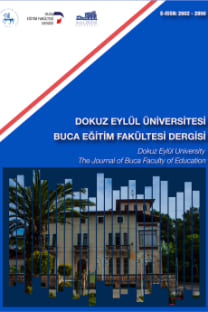Bu çalışma, bilişsel, duyusal ve bedensel becerilerin gelişiminde probleme dayalı tartışma oturumlarının ve bireysel öğrenme tercihlerinin katkılannı incelemektedir. En yaygın öğrenme tercihinin dikkate alınması probleme dayalı tartışma oturumlarının daha etkin yönlendirilmesine yardımcı olacaktır. İncelemede iki takımdan oluşan bir anket uygulanmaktadır. Takımlardan biri probleme dayalı tartışma oturumlannın, ikincisi de bireysel öğrenme tercihlerinin sözü edilen becerilerin gelişimindeki etkisine ilişkindir. İlk takımda, "Yüksek Düzeyli Düşünme ve Problem Çözme Becerileri Listesi" (Borich, 2004:294), ikinci takımda, "Öğrenirken Bilgi Edinimi ve Aktanmına ilişkin Her Bir Öğrencinin Tercihlerini" ortaya çıkarmayı amaçlayan ve 13 ifadeden oluşan VARK anketi (Fleming 2001) kullanılmaktadır. İki takımdan oluşan anket, beş yıldır probleme dayalı öğrenme (PDÖ) yöntemi uygulayan DEÜ Deniz İşletmeciliği ve Yönetimi Yüksekokulu Güverte Bölümü öğrencileri arasında uygulanmıştır. Araştırmanın verilerinden, PDÖ tartışma oturumlarının bilişsel ve bilişüstü becerilerin gelişimine katkıda bulunduğu ve örneklem grubunda en yaygın öğrenme tercihinin yaparak ve yaşayarak öğrenme olduğu anlaşılmıştır..
How Indiviual Learning Styles Affect The Medium Of Instruction At Problem-Based Discussion Sessions : Analyzing The Effects Of Vark Preferences At A Higher Maritime Education And Training (Met) Institution
The purpose of this study is two-fold: the first aim is analyzing any likely effects of the problem-based discussion sessions on promoting the cognitive,affective and psychomotor domains;and the second aim is discovering the effects,of the individual learning preferences on the above stated promotion. Considering the prevailing individual learning preferences is likely to help instructors preside over problem-based discussion sessions more effectively. The instrument of the research is a questionnaire consisting of two sets each of which is assumed to provide data for one of the two-fold aims.The first set of the questionnaire is based on the "Higher-Order Thinking and Problem Solving Checklist" (Borich,2004:294). "The second set of questionnaire comprises 13 statements derived from VARK- a guide to learning styles,aiming to reveal the "preferences of each learner about the ways to take-in and give-out information while learning" (Fleming,2001). The two sets of questionnaires are conducted through the students of Department of Nautical Science at Dokuz Eylul University School of Maritime Business and Management, where Problem-Based Learning Method (PBL) has been employed for the last fıve years. The data gained show that PBL discussion sessions contribute to promoting cognitive and metacognitive domains and also that the prevailing individual learning preference at the randomly chosen sample is kinestathetics, learning through self-practicing and self-experiencing
